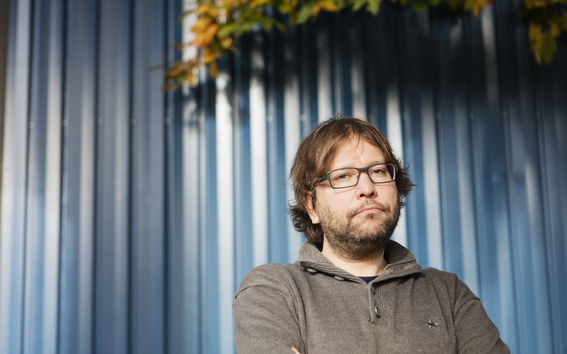Eero Kontturi: The most important skill for a researcher is the desire to read and write

Professor Eero Kontturi, what do you research and why?
I research the structure, behaviour and properties of plant-based materials. The use of plant-based materials is preferable to using synthetic solutions such as those made from oil. I have specialised particularly in the research of cellulose. Cellulose is the structural component that gives plants their strength and rigidity. Its strength properties are utilised in paper and textiles, for example, but what interests me is basic research on the surface properties of cellulose: how it behaves in contact with water, why its reactivity is so low, what new methods can be found for shaping its surface. Of particular importance are the properties of cellulose in its natural environment, meaning in the plants themselves. With this knowledge we will be able to develop new materials in the future.
How did you become a researcher?
When I was working on my PhD, I realised that I could relax in my free time by reading scientific articles. The seamless combination of work and free time is also appealing. For me it would be dreadful to go to work in the morning and then return home in the late afternoon to spend my free time. With such conflicting pressures, I would feel that my life was being spoiled. Also, my parents, who were researchers as well, gave me an example of what a life of research can be like.
What have been the highlights of your career?
Perhaps one of the best things has been the numerous experiences of other countries which my research career has made possible. It is a cliche, I know, but working abroad is hugely beneficial: through working with different people you get to see different working methods, broaden your perspectives, and gather new ideas for both teaching and research. I have had the chance to work and live in a number of places around Europe – in London, Paris and Vienna – and have been able to offer the same experience to my family as well. My circle of friends is truly international.
What is the most essential characteristic of a researcher?
Curiosity, determination, a strong work ethic – these all go without saying. I would like to particularly emphasise the ability and desire to read and write. Many have an image of natural science researchers as passionate brainboxes beavering away in their laboratories, but all scientific activity ultimately leads to the production of scientific publications. The researcher must have the stamina to wade through thousands of publications in order to shape their professional skills and outlook. For high-profile journals, one must be able to write summary texts that flow well and are understandable. This is why really top-level researchers are generally people with refined writing skills.
What do you expect from the future?
I hope that I will be able to continue as I have until now; that research and teaching would, above all, continue to be enjoyable pursuits. At the practical level, I hope that applying for funding and bureaucratic work would not take away too much time from research and teaching.
Read more news

Significant donation to boost pavement engineering research and education
Companies and associations in the field have donated €400,000 to the School of Engineering.
‘Mesoscale’ swimmers could pave way for drug delivery robots inside the body
Researchers have discovered how tiny organisms break the laws of physics to swim faster — such secrets of mesoscale physics and fluid dynamics can offer entirely new pathways for engineering and medicine.
Design strengthens industrial competitiveness – human-centered factory work at the core
Factory work is undergoing a transformation: new technologies and artificial intelligence are changing the content and roles of work. Aalto University’s Department of Design is studying this change from a human-centered perspective in the HiFive project.






